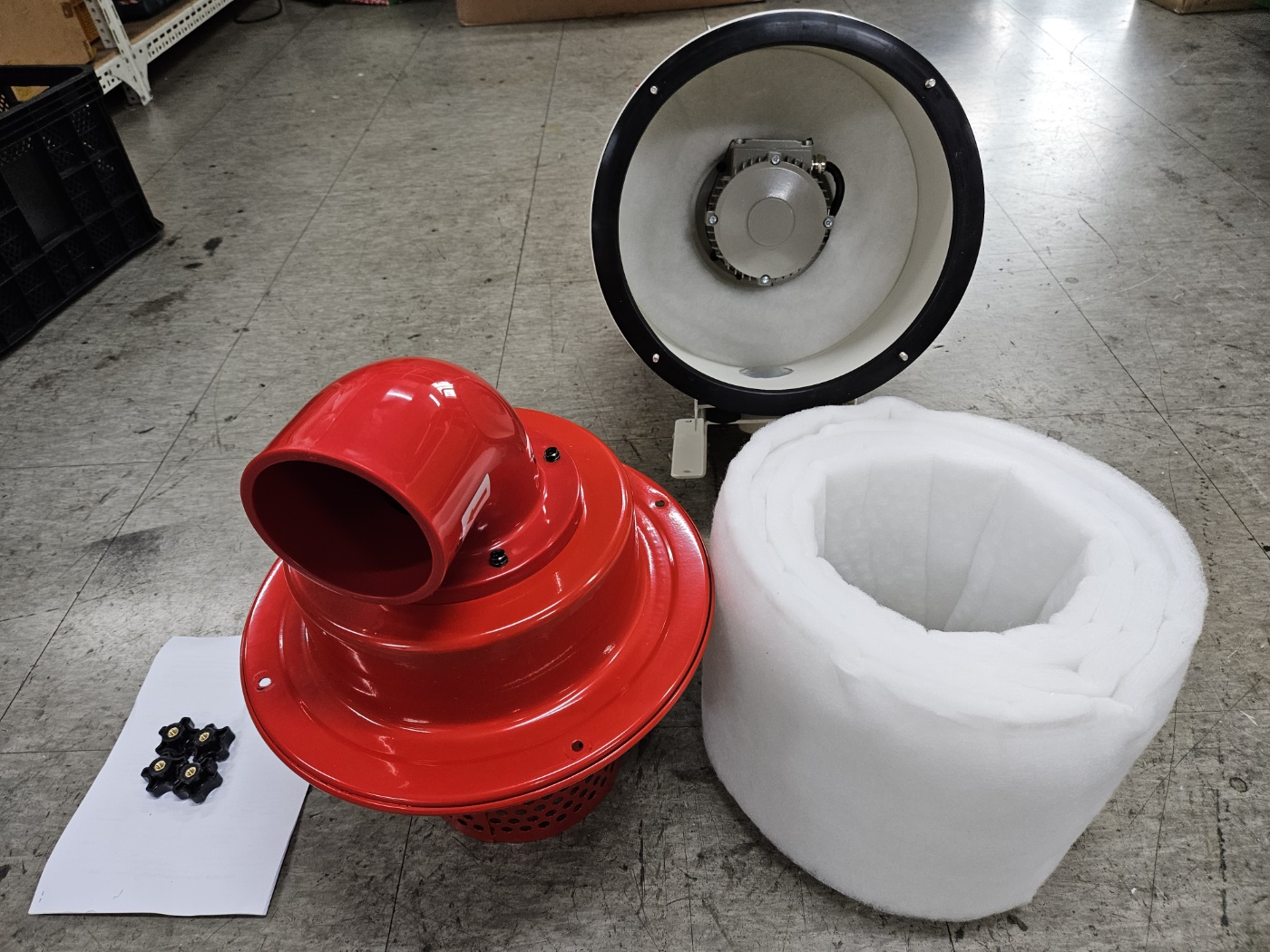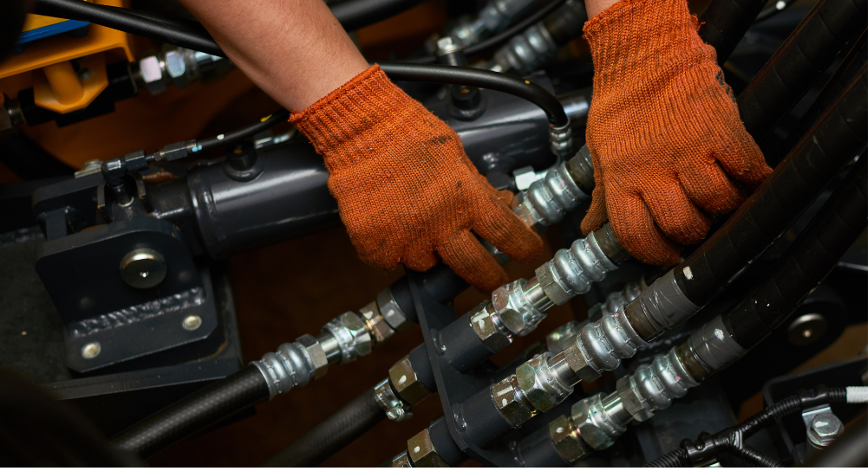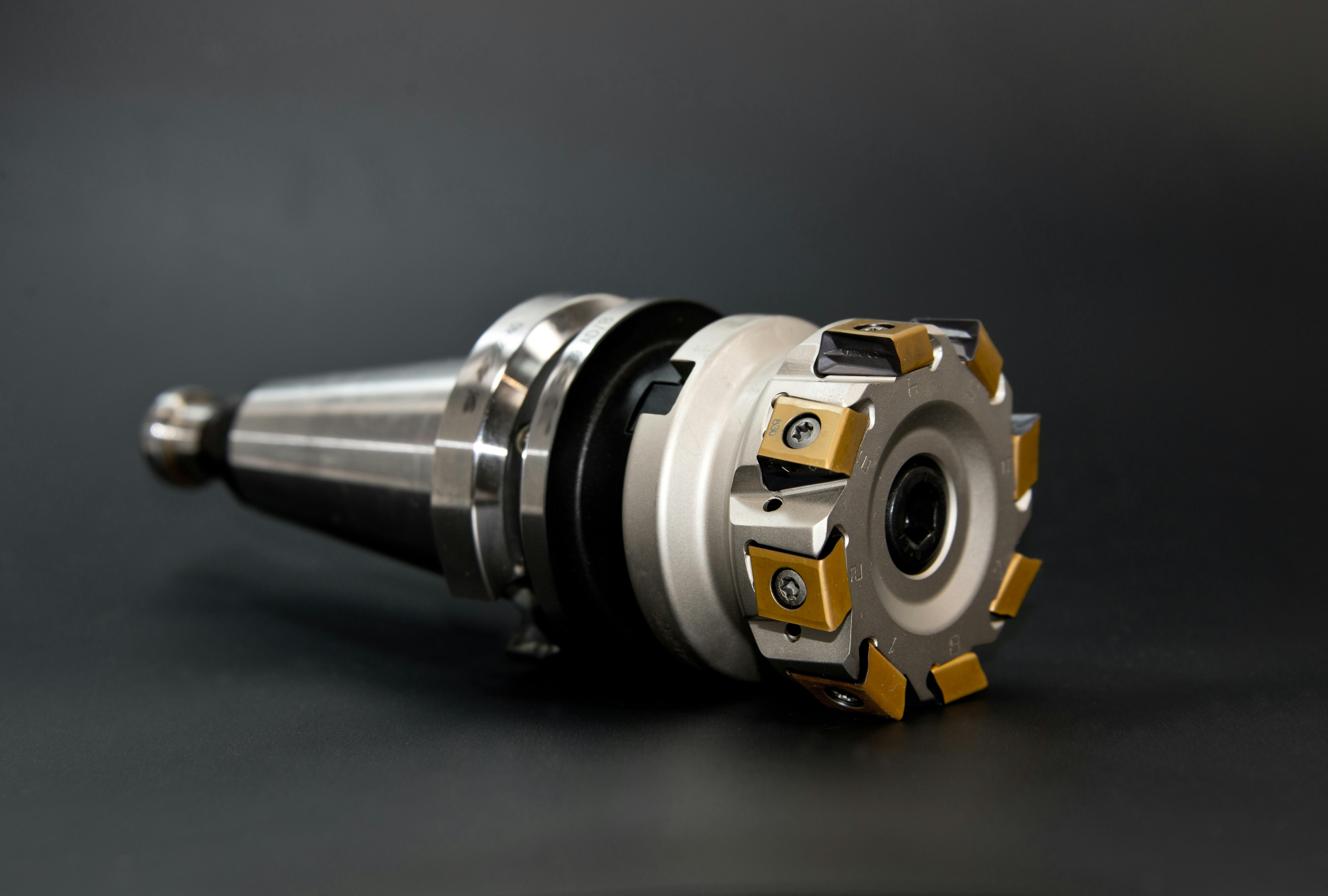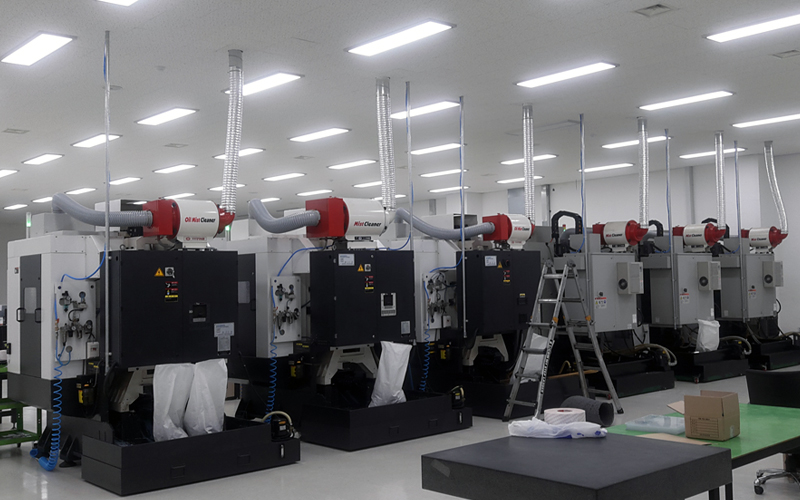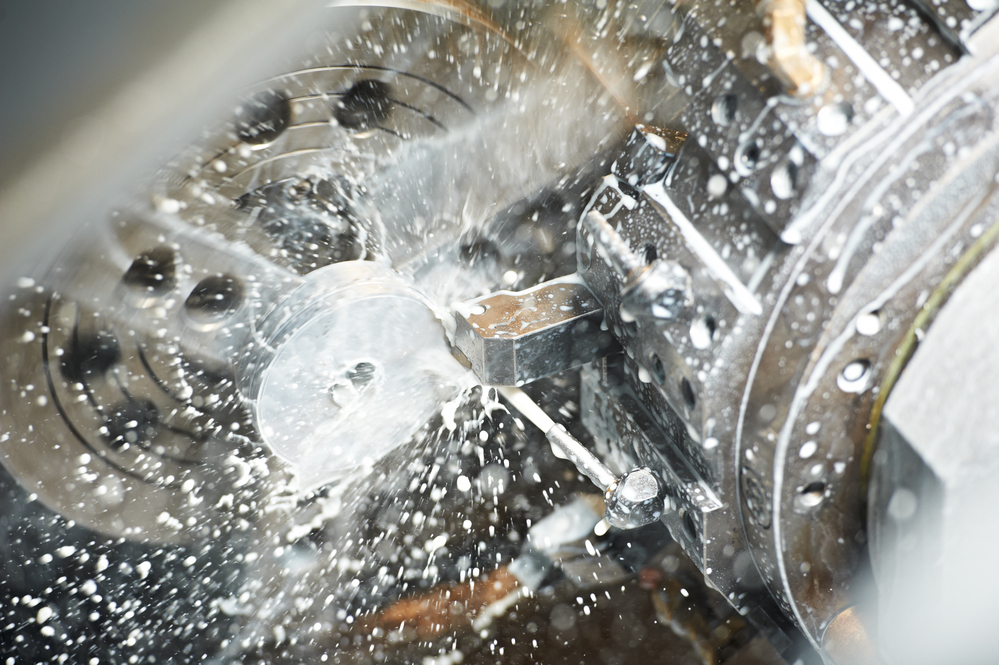 04May
04May
Coolant chillers are an important piece of equipment in many industries, particularly those that require temperature control for manufacturing or production. But what are coolant chillers, and how do they work? In this comprehensive guide, we'll cover the basics of coolant chillers, including their functions, types, and how to select the one that's right for you.
What Is a Coolant Chiller?
A coolant chiller is a piece of equipment used to lower the temperature of a liquid or gas in industrial applications. It is commonly used in manufacturing and processing operations to remove heat generated by equipment or processes. The coolant chiller works by pumping a refrigerant (such as Freon) through a circuit that absorbs heat from the coolant and then releases the heat outside of the system. This process helps maintain the desired temperature of the coolant, preventing overheating and ensuring consistent equipment performance.
Coolant chillers come in a variety of sizes and capacities and are used in many industries, including plastics manufacturing, food and beverage processing, and medical equipment production. With advancements in technology, chillers have become more efficient and cost-effective, making them a popular choice for businesses looking to improve their operations.
Applications and Benefits of Using Coolant Chillers
Coolant chillers are devices used in many industries and manufacturing processes to cool materials and equipment to prevent damage, reduce wear and tear, and produce high-quality products. They are essential in many applications, including welding, machining, plastic injection molding, and more. Below we will go into more detail about these applications and the benefits of each one.
Welding
In welding, coolant chillers are used to cool the welding torch, preventing it from overheating during extended usage. The overheating of a welding torch can lead to damages such as the melting of the welding tip or the deformation of other nearby components. Coolant chillers are also used to cool welding electrodes and consumables, which can prevent them from being damaged during the welding process.
Machining
Coolant chillers are used to cool the cutting tool and the workpiece in machining processes such as milling, boring, and drilling. This cooling helps to reduce the heat generated during the cutting process, which can cause the material being cut to harden and become brittle, making it harder to machine further. Additionally, coolant chillers can increase the lifespan of cutting tools by reducing wear and tear and minimizing tool breakage.
Plastic Injection Molding
Coolant chillers are used in plastic injection molding to cool the plastic material after it has been injected into the mold cavity. The cooling process prevents the creation of residual stress in the plastic material, which can lead to warping and shrinkage. The use of coolant chillers also helps to reduce the time it takes for the material to cool down, thereby reducing the cycle time of the injection molding process.
Medical and Laboratory Applications
Coolant chillers are used in medical and laboratory equipment such as MRI machines, CT scanners, and X-ray machines. These machines generate a lot of heat, and coolant chillers help to dissipate the heat and prevent overheating. They also help to maintain the stability and accuracy of the equipment's temperature-sensitive components, ensuring accurate and reliable test results.
Food and Beverage Industry
Coolant chillers are used in the production processes of various food and beverage products, such as beer, soft drinks, and dairy products, to maintain the temperature of the products during production and storage. They are also used in food and beverage packaging to maintain the products' temperature during transportation and storage.
In conclusion, coolant chillers are essential in many manufacturing and industrial processes. They help to prevent equipment and material damage, reduce wear and tear, and produce high-quality products. They are also used in various fields such as medical, laboratory, food, and beverage industries. If you want to improve your processes' quality and efficiency, consider investing in a coolant chiller. It is essential, however, to select the right chiller for your application, taking into account factors such as cooling capacity, flow rate, and operating temperature range. Consult with a reputable coolant chiller supplier for expert advice on how to choose the right chiller for your needs.
Types of Coolant Chillers
Two main types of coolant chillers are air-cooled and water-cooled chillers.
Air-cooled chillers use a fan to blow air over a heat exchanger, which removes heat from the refrigerant. These chillers are typically used in applications where water isn't readily available or where water consumption is a concern. They're also more compact and easier to install, making them a popular choice for smaller applications.
On the other hand, water-cooled chillers use water as a heat transfer medium to remove heat from the refrigerant. They require a separate cooling tower to discharge the heat absorbed by the process, so they're often more expensive to install and maintain. However, they're more efficient and offer greater cooling capacity, making them a better choice for large-scale applications.
Factors When Selecting a Coolant Chiller
A coolant chiller is an important piece of equipment for many industries to keep their machines at the correct temperature. When selecting a coolant chiller, there are several factors to consider. From the cooling capacity to the maintenance requirements, each factor plays an essential role in ensuring that you have the right chiller for your needs.
Cooling Capacity
The cooling capacity of a chiller is perhaps the most significant factor to consider. Essentially, it refers to the chiller's ability to remove heat from a process or application. Choosing a chiller with a cooling capacity that aligns with your cooling needs is essential. Getting a chiller with insufficient cooling capacity compromises your machine's temperature, while a chiller with an excessive cooling capacity wastes money on energy bills.
Temperature Range
Consider the temperature range required by your application when selecting a chiller. Different industrial applications will require a chiller providing different temperature ranges. For instance, for some applications, temperatures below 32°F may be necessary, while others need temperatures above 100°F. It's important to note that chillers operate most efficiently within a certain temperature range; therefore, operating the chiller outside of the recommended range can lead to performance reduction and an increase in energy consumption.
Energy Efficiency
Energy usage is always a concern for many industries, including cost-intensive air conditioning or industrial cooling systems. So when considering a chiller, choosing one with energy-efficient features is important. Energy-efficient chillers can help you reduce your energy bills, and this is vital for enhancing your bottom line. Among the most efficient chillers are those with variable-speed compressors, which adjust the compressor capacity to meet the cooling demands, thus optimizing the chiller's energy usage.
Noise Level
Chillers are known to produce noise, so selecting one that won't be disruptive is important. While noise levels can significantly vary between different types and make of chillers, the vibrations they produce transmit readily through the floor, ceilings, or walls in industrial settings. Consider acquiring a chiller with low-decibel sounds if your industrial application requires a quiet environment.
Maintenance Requirements
The maintenance required to keep the chiller working correctly is another essential factor to consider. Regular maintenance can help enhance the chiller's lifespan and reduce the number of repairs. Ensure you factor in the cost and time required for maintenance when selecting your chiller. Chillers with less complex designs and fewer movable parts will likely require less maintenance, while larger machines with more complicated systems will require regular checkups and maintenance activities.
A coolant chiller is a vital piece of equipment for many industries. When selecting a chiller, it's crucial to keep in mind factors such as cooling capacity, temperature range, energy efficiency, noise level, and maintenance requirements. Take the time to evaluate each factor carefully to ensure you get a chiller that best suits your industrial application requirements. Choosing the right chiller will help you optimize your machine's performance and reduce energy consumption and maintenance costs, ultimately enhancing your bottom line.
Benefits of Using a Coolant Chiller
In many industrial applications, coolant chillers have become an absolute necessity. They play a key role in maintaining stable temperatures in various industrial processes. Coolant chillers are used in industries such as HVAC, food processing, pharmaceuticals, laser cutting, plastic molding, and many others. They are an invaluable tool for improving the productivity of industrial processes.
Consistent Temperatures
Coolant chillers are designed to regulate the temperature of the coolant by monitoring and maintaining the required temperature range. Unstable temperatures can cause a variety of issues, such as product damage, wastage, and increased downtime. Consistent temperature control helps to protect the product, increase efficiency in the overall process, and reduce the possibility of downtime due to unexpected temperature issues.
Increased Productivity
Coolant chillers help increase productivity by maintaining optimum temperatures throughout the industrial process. This helps to improve the quality of the product being produced, reduce errors, and improve the overall speed of the production process. The temperature consistency also increases processing speeds as it enables the machinery to run faster without the risk of deteriorating product quality. This results in an overall improvement in productivity and profitability.
Energy Savings
Maintaining consistent temperatures in industrial processes can be a costly affair. Traditional cooling methods are done by circulating cold water through the plant, which can be expensive, especially when trying to maintain precise temperatures. However, with the use of a coolant chiller, energy costs can be significantly reduced. Using a coolant chiller helps reduce power consumption by optimum use of the energy supplied to the equipment.
Environmentally Friendly
Using a coolant chiller is also environmentally friendly as it helps reduce carbon footprints. It is important to note that traditional cooling methods result in high carbon emissions due to energy-intensive processes. However, coolant chillers are designed to work with environmentally friendly refrigerants that reduce the overall volume of greenhouse gas emissions. The increase in energy efficiency also helps reduce the number of gases released into the environment.
In summary, the consistent temperature control, increased productivity, energy savings, and eco-friendly benefits offered by coolant chillers make them essential tools for various industrial processes. The cost of not investing in coolant chillers may be higher in the long run, with damages to products, downtime, and higher energy costs. There is no doubt that the use of coolant chillers is an investment in manufacturing success. It is essential to choose the right chiller that suits your needs and take advantage of its numerous benefits. So, whether you are involved in food processing, pharmaceuticals, HVAC or any other industry that requires stable temperatures, invest in a coolant chiller today and enjoy its many benefits.
Coolant Chillers at IndustryNest
Now that you understand the benefits of using a coolant chiller in your industrial process, it's time to take the next step and invest in high-quality parts from IndustryNest. At IndustryNest, we offer a comprehensive range of coolant chiller components and parts designed to meet various industrial processes' unique needs.
Our parts are manufactured with the highest quality materials and are tested to ensure maximum efficiency, durability, and reliability. Each component is expertly designed to integrate seamlessly with your existing equipment, minimizing downtime and maximizing productivity. With IndustryNest parts, you can rest assured that you are getting the most advanced and reliable components available on the market.
We understand that every industrial application is unique, which is why we offer a range of customization options to meet your specific needs. Our team of expert engineers will work with you to understand your requirements and offer solutions that are tailored to your specific process.
Investing in IndustryNest parts means investing in long-term success for your industrial processes. Our components are designed to improve the consistency and efficiency of your industrial process, resulting in increased productivity, reduced downtime, and lower energy costs.
So, whether you're involved in HVAC, food processing, pharmaceuticals, laser cutting, plastic molding, or any other industry that requires stable temperatures, IndustryNest has the parts you need to succeed. Contact us today to request a quote to learn more about our comprehensive range of coolant chiller components and how we can help you take your industrial process to the next level.

